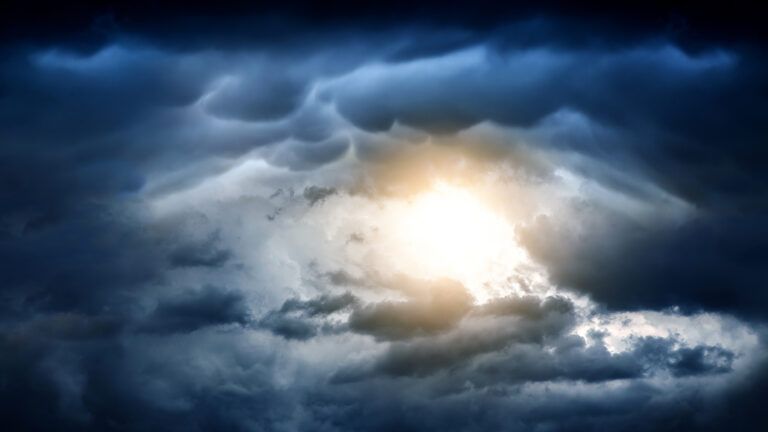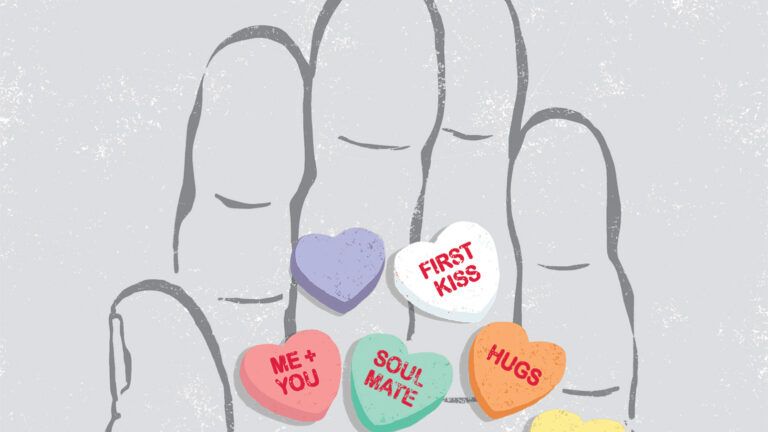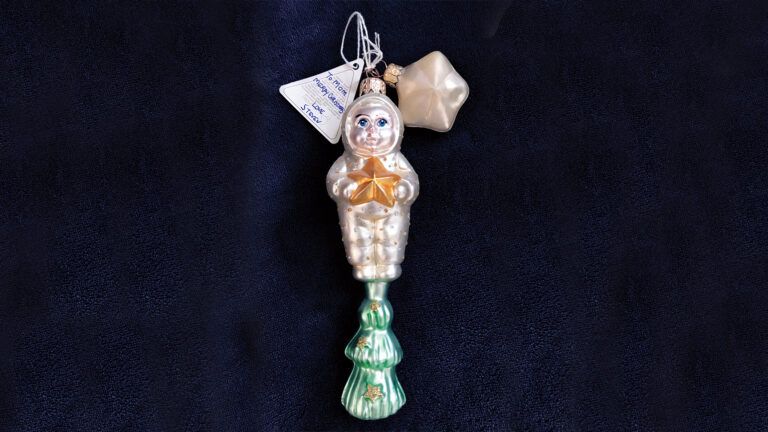Nowadays, you can’t turn on the television without hearing another tale of someone who had a near-death experience (NDE) and saw heaven. But while NDEs may seem common, only about 10 to 20 percent of people who have a close brush with death experience one, according to Dr. Jeffrey Long, a leading NDE researcher, radiation oncologist and author of Evidence of the Afterlife.
Those who do get to peek the hereafter often return with tales of heavenly wonders—from encounters with spiritual beings to landscapes more beautiful than imaginable—and a reassuring message of love and peace that leaves them forever changed.
But why do only a select few get to glimpse the afterlife? Guideposts.org talked to Dr. Long to find out.
Guideposts.org: How come some people get a NDE and others don’t?
Dr. Jeffrey Long: That’s been a very important question for NDE researchers for decades. The best conclusion, from about 40 years of research, is that we really don’t know. Those who are closer to death—in other words, those who have a more severe life-threatening event—are a little bit more likely to have a NDE. That’s counterintuitive, if you think about it. A NDE is due to a functioning brain. Yet the more comatose you are, the more likely you are to have one. So it’s a bit of a mystery. But it doesn’t seem to make a difference if you’re male or female, young or old, educated or uneducated. You name the demographic variable—culture, geographical location, religious beliefs, lack of religious beliefs, occupation—none of it seems to make a difference. NDEs appear to be an equal opportunity experience. There is one very intriguing NDE which, at least in my opinion, may explain what’s going on.
GP.org: Which one was that?
Long: There was a NDE some years ago from a woman named Laura. During her NDE, [she said] she asked God directly, “Why me? What made me so special that I was allowed to have this happen to me?” And God answered her, ‘Nothing. Love falls on everyone equally; everyone is special. This was just something you needed to accomplish your chosen life mission.’” To the best of my knowledge, that’s probably why some people have NDEs and some people don’t. There’s something—some greater intelligence in the afterlife—that seems to understand that some people need NDEs to best live their earthly lives.
GP.org: Is it common for people to ask “why me?” during a NDE?
Long: No, not at all. About 12 percent of people are actually aware of or encounter God in their NDEs. And of the thousands of NDEs I’ve studied, Laura was the only person who asked that question directly. Of course, after a NDE many people wonder, “Why did that happen to me?” But they don’t have that immediate connection with that vastly greater intelligence to really provide insight like Laura did.
GP.org: Is God picking certain people to have a NDE who might be good messengers?
Long: I’ve thought about that for decades. And I simply cannot fathom easily why it is that some people need their NDE to live their earthly life and some don’t. It’s somewhat speculative to believe that the case of Laura is indicative of all NDEs. But, I don’t have a better explanation. People who you think would be good messengers have NDEs as equally as those who seemingly would not be good messengers.
GP.org: How do NDErs themselves explain why they got a NDE?
Long: People wonder why they had their NDE. But of those thousands of NDEs I’ve researched, nobody has any specific answers, both for themselves individually and for humankind as a whole. Certainly some people, after their NDE, say, “The experience was important to me. I needed it to be more loving, more compassionate, to let go of guilt, resentment, bitterness and move on with my life.” Other people say, “I needed that to help [me] move in a different direction with a new career that’s more compatible with my new values of love and compassion.” That’s one thing many NDErs do have in common. After the experience, they’re much more likely to not fear death and have a greatly increased belief in the afterlife. In addition to that, they tend to grow to be more loving, more compassionate, and they may leave unloving relationships and seek out loving relationships instead. They may change their career. They have an increased belief in God, and an increased interest and activity in spirituality.
GP.org: While there’s no rhyme or reason to who gets a NDE, their heavenly experiences—floating outside their body, the tunnel of light, a life review—are so similar. What does that tell us?
Long: It’s a basic scientific principle that what is real is consistently observed. Unquestionably, the remarkable consistency of what occurs during NDEs is a very strong line of evidence to their reality. In all other altered consciousness of human beings—dreams, hallucinations, psychotic episodes—you don’t see that consistency. In dreams, for example, events seem to skip around and they don’t have a continuity. NDEs, though, occur very consistently among a large group of people. I’ve studied children ages five and younger and would’ve assumed that their NDEs would vary. But the elements of their NDE are pretty much identical with older children and adults. At every twist and turn I make in my research, I have been astounded at how things seem to line up, converging on the evidence-based conclusion that NDEs are real, as is their consistent message of the existence of an afterlife.






